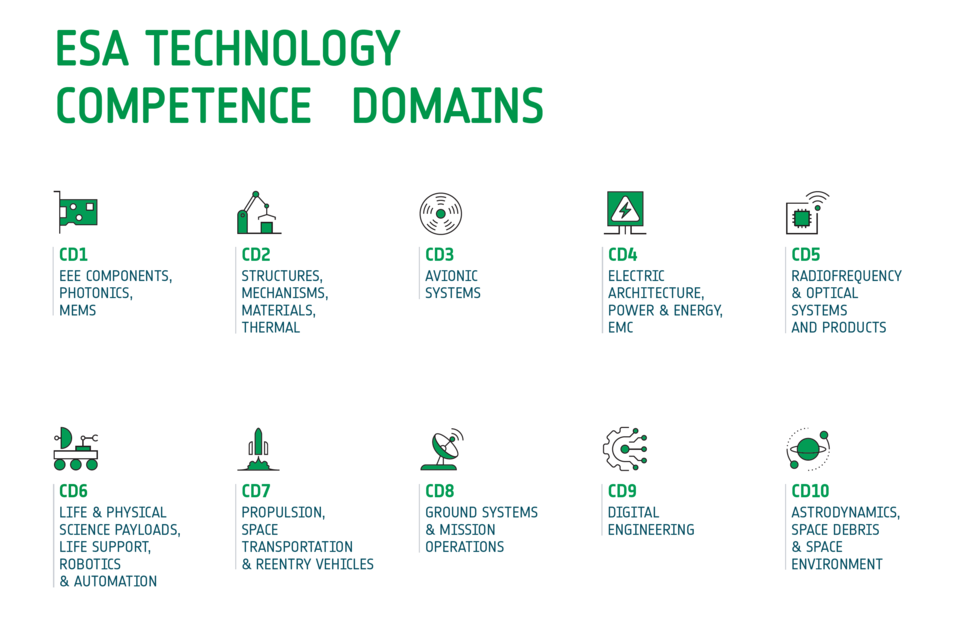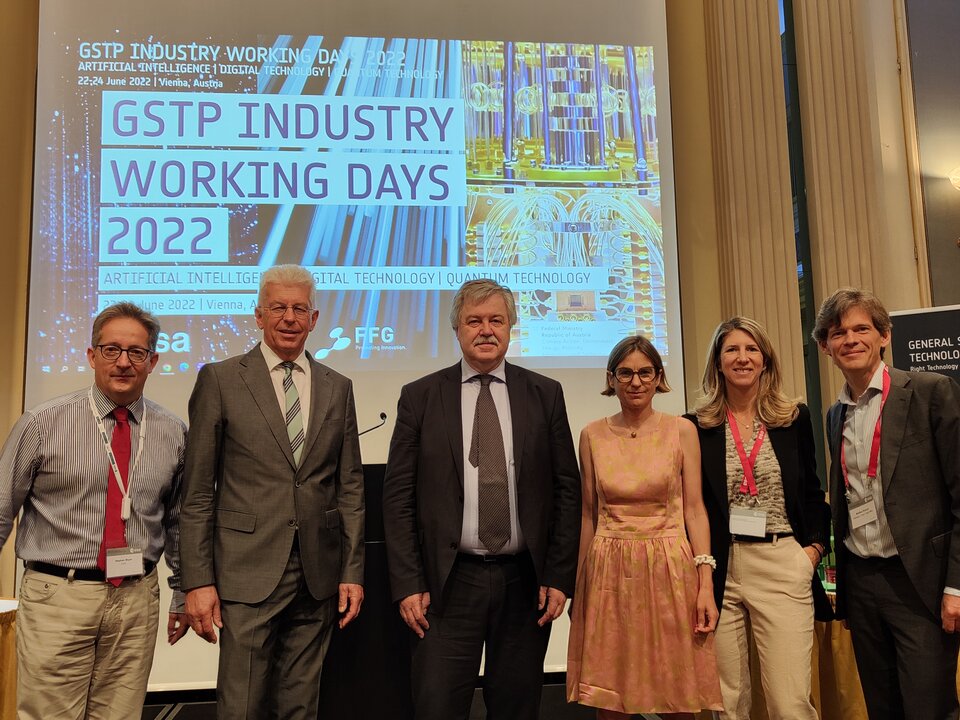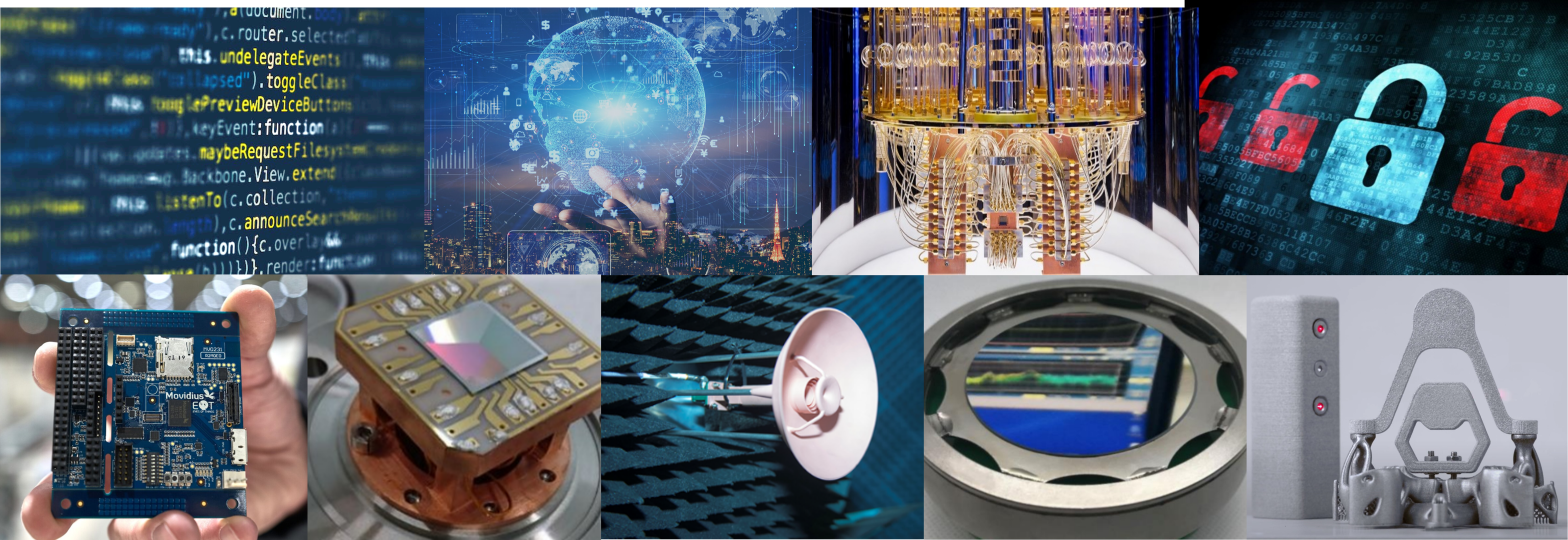GSTP Element 1 ‘Develop’ Compendia 2022 Published in esa-star
The General Support Technology Programme (GSTP) is pleased to announce the publication of the GSTP Element 1 ‘Develop’ Compendia 2022 on esa-star Publication News. Aligned with the Agenda 2025 and the updated ESA Technology Strategy, the GSTP Compendia 2022 addresses key strategic technologies in the areas of Generic Technologies, Artificial Intelligence, Digitalisation, Quantum Technologies, and Cybersecurity.
Through the GSTP optional programme, ESA, Participating States and Industry work together to convert promising engineering concepts into a broad spectrum of useable products. The Programme takes leading-edge technologies that are not ready to be sent into space and then develops them to be used in future missions. The GSTP has demonstrated itself as a successful and key programme for building know-how and capabilities in the industry, having been recognised by the Participating States as one of the best instruments in ESA to help assure Europe’s competitiveness in the global market, creating jobs and keeping Europe at the forefront of technological innovation.

The 2022 edition of the Compendia was elaborated by the ESA Technology Competence Domain leaders and the ESA application domain responsible in the areas of Earth Observation, Science, Exploration, Space Transportation, Navigation and Space Safety. In addition, the activities from the key strategic technology areas like Artificial Intelligence, Digitalisation, Quantum Technologies were validated and consolidated by Industry and Delegates of the GSTP Participating States during the GSTP Industry Working Days event organised in Vienna in June 2022.

Fostering innovation and strengthen European competitivities is key to the future development of space technologies. The Compendia is therefore open to comments and acts as a platform for discussion and support amongst industry and the GSTP delegation – building capabilities and enhancing cooperation.
A total of 143 activities are included in the Compendia categorised according to the 10 Competence Domains, and distributed in the following areas:
- Generic Technologies: 86 activities on generic technologies, considering critical elements of importance such as: fostering state of art technology adoption, innovation, technology push, spin–in of commercial technologies, supporting industrial sustainability, capacity building, European competitiveness and risk obsolescence management of critical parts.
- Artificial Intelligence: 21 activities focusing on guidance navigation and control (GNC), on the edge artificial intelligence, and autonomous mission operations. Artificial Intelligence (AI) offers a new approach to engineering that can replace many traditional software tools, substituting the traditional software coding with algorithms that mimic human brain processes and can also enable new applications at the moment not covered by any software tool, e.g. clustering, automation of process requiring decision making, etc. AI is advantageous in complementing model-based techniques with data-driven methods, providing integrated onboard machine learning and enhanced engineering tools for improved efficiency.
- Digitalisation: 15 activities aiming at representing all the different elements of a space system digitally, with a particular emphasis on model-based system engineering, simulation, digital spacecraft and data management. Digitalisation is focusing on the process of representing all the artefacts of space systems under a (structured) digital representation, on which computers can reason and elaborate. The key to its efficiency is the digital continuity in all the dimensions of space systems development: disciplines, life cycle and supply chain, but also between projects.
- Quantum Technologies: 7 activities that develop the underlying theory, techniques and technologies on quantum processing, that enhances the performance, payload and/or mission planning of European activities. Quantum technology can be applied to several different cases, secure communication, computation, simulation and sensing. Activities in this Compendium address in particular Quantum sensing (increasing the sensitivity and accuracy) and Quantum computation (data analysis and exploitation, in-orbit prediction and enhancement) applications.
- Cybersecurity: 14 activities that address the continuing evolution of the cybersecurity threat-mitigation landscape and the challenges of securing European space activities and their ground and space-based assets. Space infrastructure must be adequately protected, as it is more vulnerable than in the past, subjected to the attacks. The usage of Off-a-Shelf products and the typically long lifetime of space missions raise the need for cyber resilience, vulnerability management and defence against cyber-attacks. Activities included in the GSTP Compendium 2022 Cybersecurity address technologies that are candidate to face the evolution of the Cybersecurity threat landscape, mitigating the potential security challenges impacting space activities.





